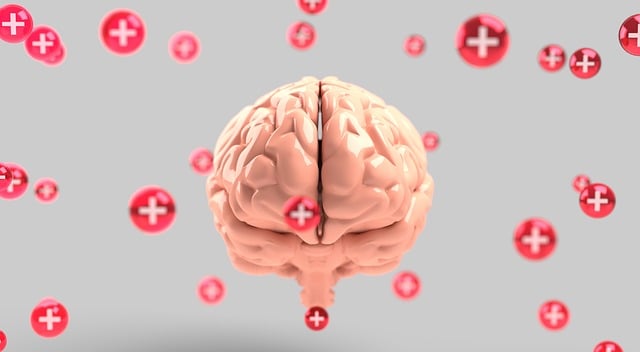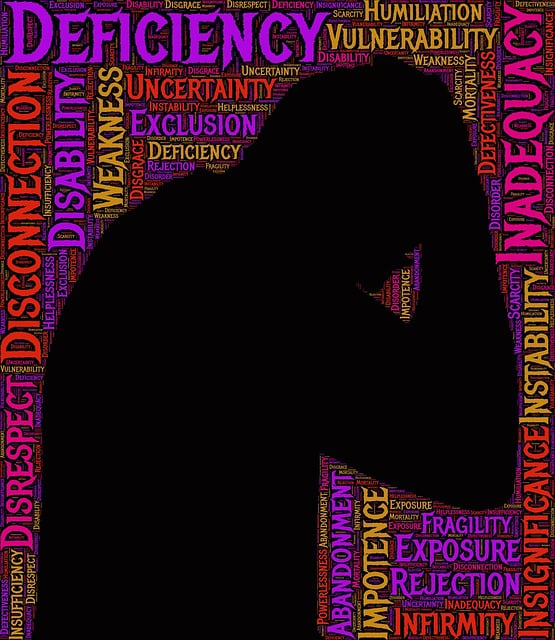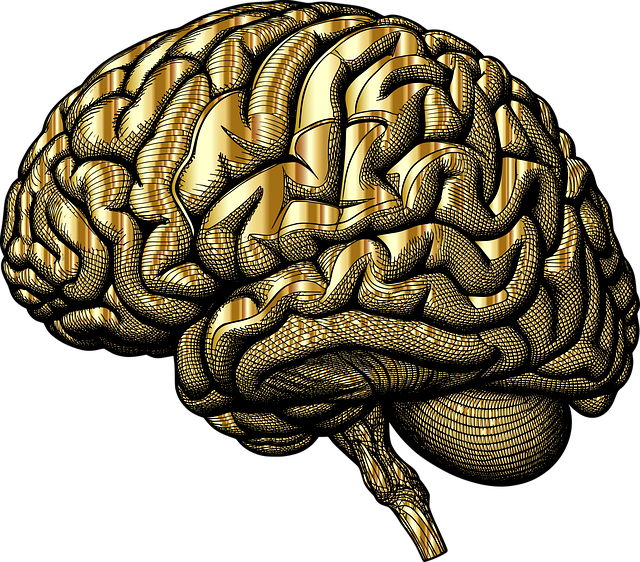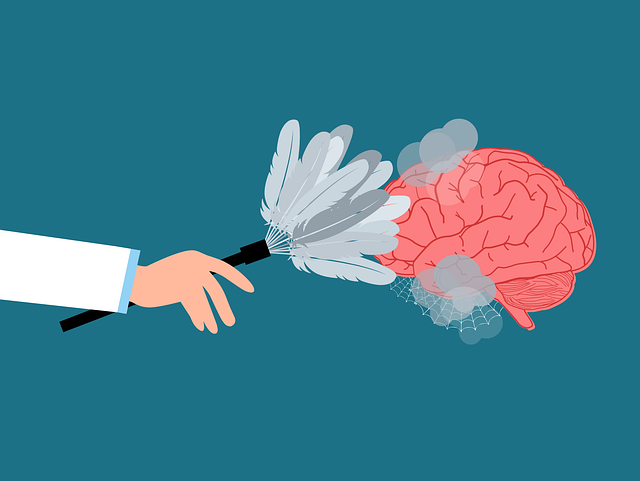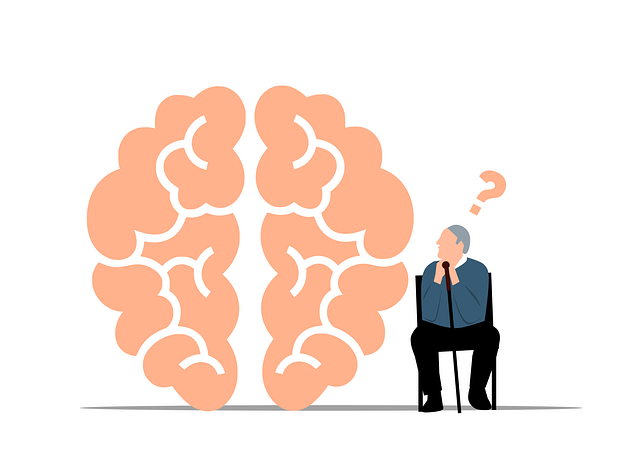Englewood Mental Health Evaluations and Therapy offers a comprehensive approach to mood regulation, combining personalized strategies, cognitive techniques, mindfulness, and lifestyle interventions. Through expert assessments, individuals gain control over their emotional states by learning anxiety relief methods, empathy-building skills, and mental health education. Cognitive restructuring, mindfulness practices, and self-care routines empower clients to manage stress, improve emotional intelligence, and cultivate inner resilience, ultimately enhancing overall well-being.
Mood regulation strategies are essential tools for navigating life’s emotional ups and downs. This comprehensive guide explores various techniques designed to help individuals achieve and maintain emotional balance. From understanding the complexities of mood regulation to leveraging cognitive techniques, therapy, mindfulness, and lifestyle interventions like diet, exercise, and sleep, each section delves into evidence-based practices backed by Englewood Mental Health Evaluations Therapy.
- Understanding Mood Regulation: Unraveling the Complexities of Emotional Balance
- The Role of Therapy in Developing Effective Mood Regulation Strategies
- Cognitive Techniques: Shaping Thoughts for Improved Mood Management
- Mindfulness and Meditation: Cultivating Present-Moment Awareness for Emotional Stability
- Lifestyle Interventions: Diet, Exercise, and Sleep as Pillars of Mood Regulation
Understanding Mood Regulation: Unraveling the Complexities of Emotional Balance

Understanding Mood Regulation is a multifaceted process that involves recognizing and managing emotional states. It’s about achieving an emotional balance, where one can navigate life’s ups and downs with resilience. Emotional well-being isn’t static; it’s a dynamic equilibrium, requiring active engagement in self-care practices. Englewood Mental Health Evaluations and Therapy play a pivotal role in this journey, offering personalized strategies to help individuals gain control over their moods.
Anxiety Relief, Empathy Building Strategies, and even Mental Health Education Programs Design are all components of a comprehensive approach to mood regulation. By learning effective coping mechanisms, one can enhance emotional intelligence, improve stress management, and cultivate a deeper understanding of their own mental landscape. This process empowers individuals to make informed choices, fostering a sense of agency over their emotional well-being.
The Role of Therapy in Developing Effective Mood Regulation Strategies

Englewood Mental Health Evaluations therapy plays a pivotal role in helping individuals develop effective mood regulation strategies. Through comprehensive assessments and evidence-based therapeutic approaches, professionals can identify underlying causes of emotional dysregulation and tailor interventions to meet specific needs. This personalized approach fosters inner strength development by equipping people with coping skills designed to navigate life’s challenges more adaptively.
By engaging in therapy, individuals gain insights into their thought patterns, emotions, and behaviors, enabling them to challenge negative or distorted perspectives. Therapists guide clients in learning healthy coping mechanisms, such as mindfulness techniques, stress management strategies, and problem-solving skills. This supportive environment encourages self-awareness, emotional resilience, and the ability to regulate moods effectively, ultimately enhancing mental health awareness and overall well-being.
Cognitive Techniques: Shaping Thoughts for Improved Mood Management

Cognitive techniques are powerful tools for individuals seeking to manage their moods effectively. This involves a conscious effort to recognize and reshape negative or distorted thought patterns that can significantly impact emotional well-being. By understanding the connection between thoughts, feelings, and behaviors, one can develop more adaptive coping strategies. For instance, challenging negative self-talk and replacing it with realistic, positive affirmations can boost mood and resilience, as supported by various Englewood Mental Health Evaluations and Therapy studies.
These cognitive techniques are an integral part of Coping Skills Development, enabling individuals to navigate stressful situations better. They foster Resilience Building, allowing one to bounce back from setbacks and prevent Burnout. Through regular practice, these strategies can transform one’s relationship with their thoughts, leading to improved overall mental health and a more balanced mood state.
Mindfulness and Meditation: Cultivating Present-Moment Awareness for Emotional Stability

Mindfulness and meditation are powerful tools for cultivating present-moment awareness, a key aspect in achieving emotional stability. These practices encourage individuals to focus on their senses, thoughts, and feelings without judgment, helping to calm the mind and reduce reactivity to stressful situations. By regularly engaging in mindfulness exercises, one can develop a deeper understanding of their emotions and learn to respond rather than react, fostering better mood regulation.
At Englewood Mental Health Evaluations & Therapy, we recognize the importance of these practices in enhancing overall well-being. Incorporating mindfulness and meditation into daily routines can be transformative, particularly when combined with other Self-Care Practices. Emotional Intelligence, for instance, is often strengthened through these techniques, allowing individuals to better interpret their emotions and those of others. Moreover, Healthcare Provider Cultural Competency Training emphasizes the role of mindfulness in building stronger patient connections and delivering more effective care.
Lifestyle Interventions: Diet, Exercise, and Sleep as Pillars of Mood Regulation

Englewood Mental Health Evaluations and Therapy highlights the profound impact that lifestyle interventions can have on mood regulation. Diet plays a crucial role by influencing neurotransmitter production; a balanced diet rich in omega-3 fatty acids, vitamins, and minerals supports optimal brain health and emotional stability. Regular exercise, another cornerstone of these interventions, not only releases endorphins but also enhances neuroplasticity, enabling better stress management and improved mood.
Additionally, sleep is integral to this trio. Quality rest allows for the consolidation of memories and emotional processing, facilitating resilience building and compassion cultivation practices. By integrating mindful eating, regular physical activity, and adequate sleep into daily routines, individuals can significantly contribute to their own Emotional Healing Processes, as advocated by Englewood Mental Health professionals.
In navigating the intricate landscape of mood regulation, it’s evident that a multifaceted approach is key. Combining therapy for personalized insights, cognitive techniques for thought management, mindfulness practices for present-moment awareness, and lifestyle interventions like diet, exercise, and sleep, individuals can create a powerful symphony of emotional balance. For comprehensive support, Englewood Mental Health Evaluations Therapy offers tailored strategies to help clients revolutionize their mood regulation, fostering a more stable and fulfilling life.




